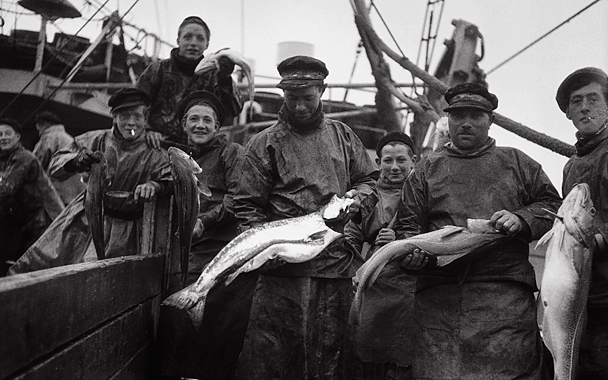It’s easy to make an emotional case against Canada’s annual East Coast seal hunt. But it’s hard to make ecological and economic arguments against it: None of the seal species targeted are in any way endangered, and the hunt provides income to a desperately poor region at a time of year when it’s most needed.
Last week, the European Parliament opted for the easy course when it voted overwhelmingly to ban imports of many Canadian seal products.
If only the European Union displayed such integrity and backbone and applied such lofty principles to its own constituents, whose greed threatens to wreak devastation on cod, tuna, and other fish populations. But I guess it’s hard to get emotionally worked up about cod, even when the species is ecologically on the brink.
Late last month, the Canadian office of the World Wildlife Fund (WWF) came out with a press release claiming that cod bycatch on the southern Grand Banks, off the coast of Newfoundland, was 70 percent higher than targeted for 2008—nearly twice the level scientists say the decimated population can stand and still have a chance of recovering. (“Bycatch” is fisheries jargon for unwanted fish species taken by boats seeking other quarry.) The EU fleet was the biggest offender, accounting for more than half of the total.
Officially, there has been a moratorium on cod fishing on the Grand Banks since the population collapsed in the 1990s. So far, they have shown few signs of recovery. Bycatch may be one reason why the Grand Banks cod have not come back, even after 15 years. The amount of cod taken—713 tons last year—leads me to question how “unintentional” the catch really is.
But when it comes to fisheries management, the EU has a long and disgraceful history of pointing accusatory fingers at everyone except itself. The EU’s own scientists say that 30 percent of Europe’s fish stocks are over-exploited, according to a document obtained by the BBC. The scientists also complain that EU environmental ministers succumb to pressure from fishermen and routinely revise scientifically determined catch limits upwards when establishing annual quotas.
For years, the respected International Council for the Exploration of the Sea has been telling the Europeans that there should be “zero catch” of cod in the Irish Sea, North Sea, and waters off Scotland. But according to Taras Grescoe, author of Bottomfeeder (a must-read book for any conscientious seafood lover), “Every year, politicians ignore the scientists and implement only slight decreases in quotas.”
European delegates play a large role in decisions made by the International Commission for the Conservation of Atlantic Tunas, which last year set a quota that their own researchers say is almost exactly twice the level that is sustainable. Meanwhile, Atlantic bluefin populations may already have dropped to the point of no recovery.
Through “Economic Partnership Agreements” that involved paying fees directly to governments, wealthy Europeans gained exclusive rights to fish in some African countries’ territorial waters. The WWF accused them of taking advantage of these questionable deals to engage in “massive overfishing.”
The EU’s seal-product ban is on the verge of escalating into a full-scale battle, with the Canadians threatening to take the issue to the World Trade Organization. I have a more satisfying solution to the dispute: Stop catching Canadian cod. At least then there will be a chance for the populations to recover. Someday, the fishermen of Newfoundland and Labrador might make a living again. Then they wouldn’t be able to claim that economic necessity was forcing them to go out onto the ice floes hoping to make a few bucks off seal pelts. And the EU can concentrate on cleaning up its own act.




 Pinterest
Pinterest


